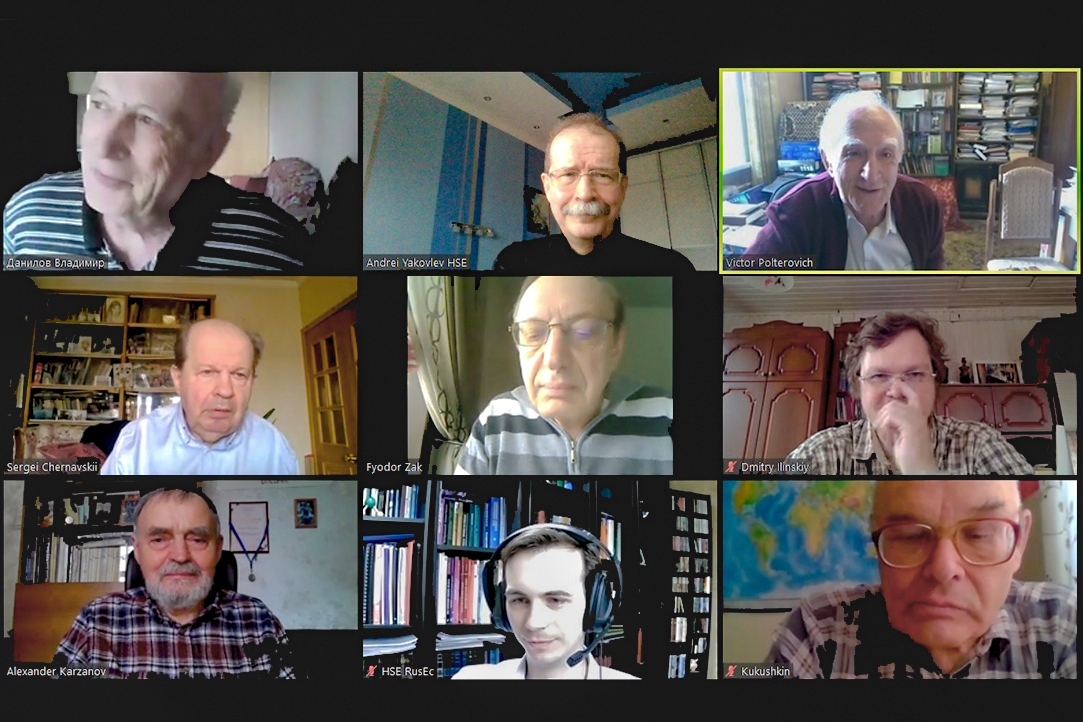Семинар ЦЭМИ РАН "Математическая экономика"
27 апреля Андрей Яковлев представил на заседании онлайн-семинара ЦЭМИ РАН "Математическая экономика" доклад "Карьерные траектории региональных лидеров: Россия и Китай до и после 2012", подготовленный совместно с Томасом Ремингтоном, Еленой Овчинниковой и Александром Часовским.

В обсуждении приняли участие Виктор Полтерович, Владимир Данилов, Сергей Чернявский, Генрих Пеникас и другие коллеги.
Аннотация доклада: Authoritarian leaders rely on regional leaders for both political support and the fulfillment of their policy objectives. In addition, top leaders face trade-offs between following established rules for managing bureaucratic officials’ careers and exercising a free hand in choosing regional officials. This paper compares patterns of appointment of regional officials in Russia and China before and after 2012. The two countries share a legacy of centralized communist party rule, vast size, and a complex policy environment characterized by the balance between state control and market competition in their economies. In recent years, the leaders of both countries have centralized and personalized state power. We hypothesize that these changes have altered policies for managing the appointments of regional leaders in such a way as to increase their dependence on the central authorities and reduce their autonomy to create their own networks at the regional level. Leaders. Our analysis uses a comprehensive original set of biographical data on all top regional officials from 2003 through 2019 in China and from 2000 through 2019 in Russia. We discern clear differences between the pre- and post-2012 period for China and less marked differences for pre- and post-2012 Russia. These findings are consistent with our expectations. Turnover of regional officials has become more frequent in both systems; average tenure in office has fallen; and the share of “outsiders”—appointment of officials lacking prior ties to the region—has risen. However, the corps of regional officials has not been rejuvenated.
Яковлев Андрей Александрович
Международный центр изучения институтов и развития: Директор
